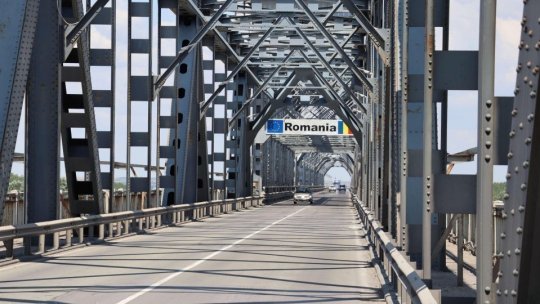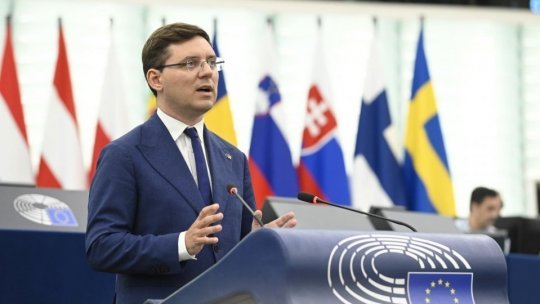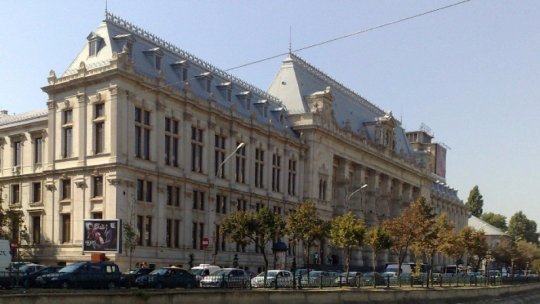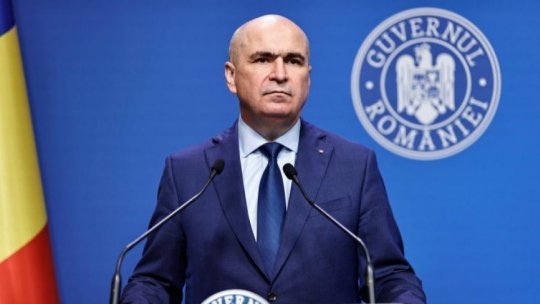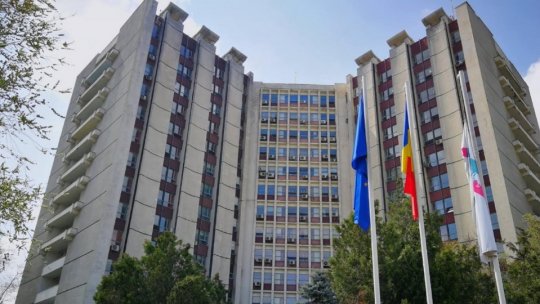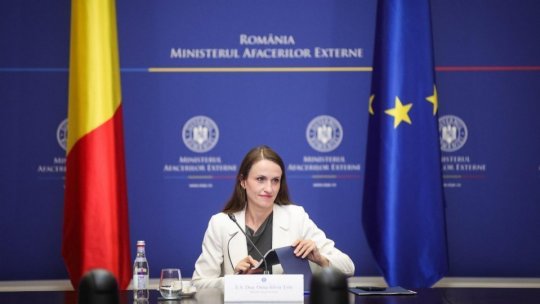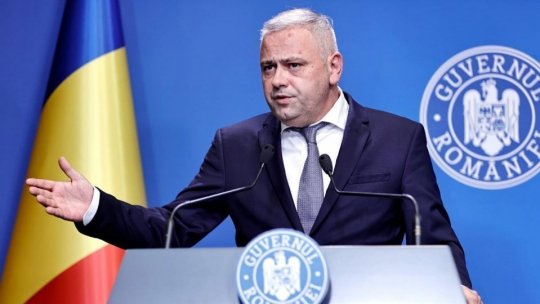“Stolen Children of Ukraine” – How Diplomats, Journalists, and Experts Describe the Most Disturbing Chapter of the Russian Invasion
The deportation of Ukrainian minors to Russia has emerged as a red line in Western discourse: over 25,000 children—Kiev’s official figure—have been forcibly taken from their parents.
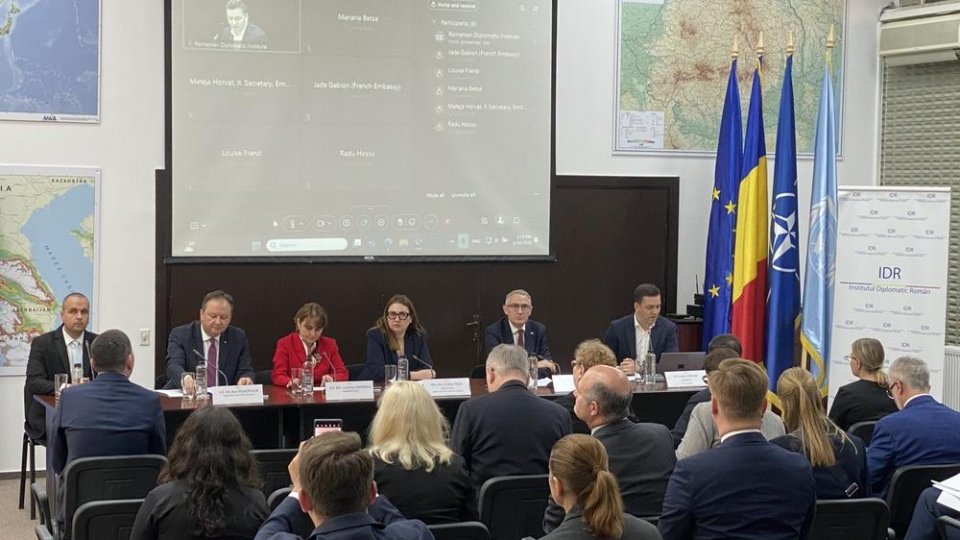
Articol de Alex Buzică, 28 Mai 2025, 16:58
Three years into the war, the deportation of Ukrainian minors to Russia has emerged as a red line in Western discourse: over 25,000 children—Kiev’s official figure—have been forcibly taken from their parents, sent to “re-education camps,” some adopted into Russian families, others shuffled between occupied regions under military control.
This atrocity has already prompted two International Criminal Court arrest warrants against Vladimir Putin.
Canada: “You Steal a Nation’s Future”
Opening the debate hosted in Bucharest by the Romanian Diplomatic Institute, Canada’s ambassador, H.E. Gavin Buchan, laid out his government’s stance without equivocation:
“Out of all the crimes Russia has committed in Ukraine—and there are many—this is the most odious. You steal a country’s future, you steal its children. Children ripped from their culture, their homes, their families, forced to grow up in the invader’s land, brainwashed to think like Russians. Canada has taken this issue extremely seriously: we hosted the fourth Ukraine Peace Platform working group and co-chair, alongside Kiev, the International Coalition for the Return of Ukrainian Children. These are practical steps to mobilize the international community and bring these kids home.”
According to Ottawa, by early May the coordination mechanism had located 386 minors and successfully repatriated 138 of them.
Romania: “Tens of Thousands of Destinies, One Moral Imperative”
Luminița Odobescu, former foreign minister and presidential adviser for European affairs, stressed both the humanitarian dimension and the importance of public awareness:
“We are talking about over 20,000 children taken from their families and deported to Russia. Some, tragically, even forced to fight against their own country. This is a dramatic situation. We need to raise awareness in Romania too, to explain what war concretely means for a family: you lose your home, your security, your child. The efforts of governments, NGOs, and international organizations are essential for repatriation—and Canada’s initiative is one of the pillars of this support network.”
Romania currently provides humanitarian transit for recovered minors, offering temporary shelter and psychological counseling services.
On-the-Ground Testimony from the Border
Journalist Vitalie Cojocari, who covered the first days of the February–March 2022 exodus at the Siret crossing, put the scenes into words:
“At first, the tragedy was fleeing with parents: children freezing, asleep in arms, cradled by tearful mothers. I thought it couldn’t get worse. Then I learned that tens of thousands were simply kidnapped and taken into the Russian Federation. Children recount being forbidden to speak Ukrainian, to access news outlets or social media, forced to adopt Russian symbols. Some have returned and speak out. Others still await the journey home.”
A New York Times investigation published earlier this month confirmed a network of “military-patriotic recreation” centers in Crimea and Krasnodar, where minors undergo “loyalty training” programs.
Kiev: “A Genocidal Policy, with International Arrest Warrants”
Concluding the panel, Ukraine’s ambassador to Bucharest, H.E. Igor Prokopciuk, detailed the human and legal impact:
“Over 2,500 Ukrainian children have been killed or wounded, as Russia strikes residential areas indiscriminately. But one of the gravest crimes of this war is deportation—a systematic, inhumane, genocidal policy. Children are abducted, their identities erased, forced to assimilate into Russian society. Documenting these crimes led the International Criminal Court to issue arrest warrants for Vladimir Putin and his associates.”
Ukraine’s Prosecutor General’s Office reports that 426 individual deportation cases have already been brought to domestic courts, with another 2,100 under investigation.
Meanwhile, the Canada-led International Coalition is preparing a $25 million guarantee fund for recovery operations and post-trauma counseling.
Where bombs destroy buildings, the policy of deportation destroys identities. Ukrainian children, turned into “trophies” of war, represent the moral frontier that Western diplomats—from Ottawa to Bucharest—have publicly vowed to defend. “You steal a nation’s future,” summed up H.E. Gavin Buchan.
The rest of the panel filled in the picture: tens of thousands of destinies caught between statistics, arrest warrants, and still-fragile humanitarian corridors. Until every child returns home, the deportation scandal will remain the starkest illustration of the war’s ethical dimension in the heart of Europe.

